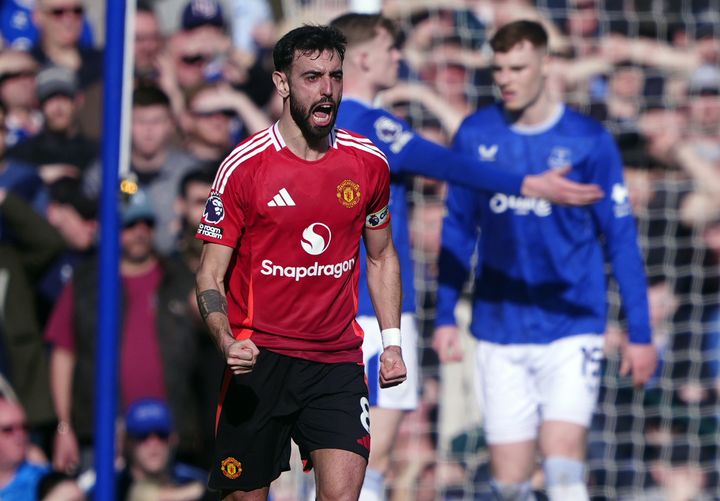
TWICKENHAM STADIUM — When England’s home crowd are booing, and the team are not even losing, there must be something obvious amiss, and in this latest edition of the madcap close-run scorelines of the Steve Borthwick era, it was the Red Rose attack that malfunctioned.Two weeks ago England beat France 26-25 with four tries for their first win over top opposition in 10 months and eight attempts.This time they beat Scotland 16-15, and were outscored three tries to one – and lucky to get one, as there was no clear grounding of the score awarded to Tommy Freeman early in the first half.
if(window.adverts) { window.adverts.

addToArray({"pos": "inread-hb-ros-inews"}); }If the beauty of rugby is that two such different contests can end up in a one-point win for the same team, the appeal will be lost on the Scots, who play some of the prettiest rugby on the planet, but lose more often than they win, especially when titles are on the line.#color-context-related-article-3549081 {--inews-color-primary: #8BC419;--inews-color-secondary: #F6FBED;--inews-color-tertiary: #8BC419;} Read Next square RUGBY UNION England finally break Scotland hoodoo with first Twickenham win for eight yearsRead MoreAs for England, how did they feel about winning ugly? “It wasn’t necessarily pretty,” Maro Itoje, the captain, said – speaking on behalf of the team with the more mollifying four words instead of two. “Scotland threw a whole of difficult questions at us,” Itoje added, “and I am just very proud the boys stuck in there and we found a way to win.
”England’s answers to Scotland’s questions generally comprised a lot of huffing and puffing and tackling and kicking, and the kicking did not work, and those who buy the most expensive seats in the sport were hacked off by it. Twickenham men and women are generally ready to get behind England at the drop of a gin and tonic, but having seen the scrum-half Alex Mitchell kick the leather off the ball in the first half, they began booing when Fin Smith at fly-half began launching diagonal kicks from the centre of the field towards the right-hand touchline in the second half.if(window.
adverts) { window.adverts.addToArray({"pos": "mpu_mobile_l1"}); }if(window.
adverts) { window.adverts.addToArray({"pos": "mpu_tablet_l1"}); }The crowd wanted the ball in the home side’s hands more often and so too, it turned out, did the England head coach, Steve Borthwick.
“We don’t necessarily want to play the way we’ve played today,” said Borthwick, as he appraised a match in which Scotland had 59 per cent of the territory. “We want the ball in hand, to move the ball. We have a lot of creative talent, but Scotland are then trying to stop you doing that.
”The Smith ploy was extra questionable as he was targeting the giant Scotland back-three pair of Blair Kinghorn and Duhan van der Merwe, two men well capable of dealing with the high ball, although the reasoning may have been for England’s own back three of Freeman, Ollie Sleightholme and Marcus Smith to swoop on the scraps of an aerial contest. If so, it didn’t work.Mitchell’s box-kicking drew boos from the stands (Photo: Getty)But there was also an element of Fin Smith desperately seeking a way of unstitching the blanket thrown over them by Scotland’s suffocating defence.
It created an archetypal arm-wrestle in the central areas and was almost entirely different to the looseness permitted by the French when Smith made his first England start a fortnight ago.His namesake Marcus might have been better for the No 10 job this time, in these circumstances, not viewing matters mostly detached at full-back – and that is the tactical knife-edge Borthwick is tiptoeing along right now.When England did bring off a flashy move, and Ollie Lawrence made a line-break and Marcus Smith charged onto his shoulder, they managed to butcher it, as Lawrence’s overegged flipped pass on the Scotland line flew into touch.
if(window.adverts) { window.adverts.
addToArray({"pos": "mpu_mobile_l2"}); }if(window.adverts) { window.adverts.
addToArray({"pos": "mpu_tablet_l2"}); }That was just before half-time, and seven minutes into the second half Henry Slade cut inside when an overlap involving that same Smith looked to be on.All in all, a hugely disappointing effort in attack, or as Itoje put it: “We need to find ways to spend more time there [in the opponents’ half].”Now, the good news: England aren’t turning a blind eye to these problems, and it is hugely preferable to be doing so from winning positions, however narrow.
England have the two weakest teams in the Six Nations still to play – Italy here and Wales in Cardiff – and a chance of the title if Ireland slip up against France in Dublin or the Italians in Rome, or at least of a first top-two finish in the competition since 2020.Itoje’s men also have the Calcutta Cup back in the trophy room after four years away.But the season-long perception of England is unchanged, and maybe it will take much than a season to do it.
They are a team who recently lost a chunk of players to retirement and French clubs, they are not quite in the game’s top rank, and their way to success on this occasion was to “run hard for each other”, as Borthwick put it, and half-pray and half-plan to see the scoreboard at the end of 80 minutes in their favour..














